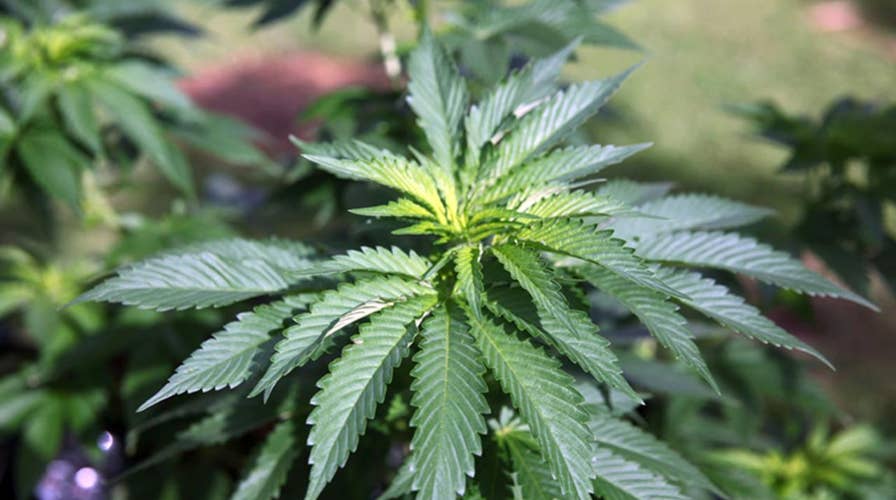Dr. Marc Siegel shares his concerns with Cory Booker's effort to legalize marijuana
Democratic 2020 presidential candidate Cory Booker wants to legalize marijuana in the U.S. and expunge records for federal offenses for use and possession.
I don’t think Sen. Cory Booker, D-N.J., read my column earlier this week in which I cautioned against the potential long-term side effects of chronic marijuana use, which include behavioral problems, problems with memory and judgment, anxiety and depression, paranoia, and yes, even an uncontrollable vomiting disorder known as Cannabinoid Hyperemesis Syndrome.
One reader with this condition wrote that it took him over six months to start “mentally feeling normal” after stopping smoking.
If Booker was aware of these and other problems, he and Democratic Reps. Barbara Lee and Ro Khanna of California might have hesitated before introducing the ironically titled “Marijuana Justice Act,” which seeks to remove pot from the list of controlled substances, thereby legalizing it for recreational use.
DR. MARC SIEGEL: HEAVY POT SMOKING HAS NOW BEEN LINKED TO THIS STRANGE SYNDROME
Presidential hopefuls Senators Kamala Harris, D-Calif., Bernie Sanders, I-Vt., and Elizabeth Warren, D-Mass., have co-sponsored the bill, which also would expunge the criminal records of those who have been charged with marijuana possession.
I believe this last part is a good thing, but as a practicing physician, I must point out that decriminalization is not the same thing as opening the door wide for recreational use. Critics of my position are quick to point out that alcohol and cigarettes are far more deadly than weed, and that they are both legal and heavily marketed and available regardless of potential health problems.
The problem with this straw man argument is that one harmful chemical being legal is not automatic justification for another one becoming legal.
Widespread recreational use of marijuana leads to two major problems. First, there is an associated loss of awareness that may be harmful. This trend was shown in a disturbing study about the perceptions of pot among eighth- and 10th-graders following the legalization of recreational use in Washington state in 2012.
Keep in mind that it took decades for physicians to convince patients that cigarettes and alcohol are bad for you, because they are legal and readily available. We hardly need to perpetuate the same misconception about marijuana – that if its legal it must be OK to use unchecked.
Second, legalization may lead to widened use of marijuana in an increasing number of products. Ten states have already legalized weed for recreational use, and it is currently under serious legislative consideration in New Hampshire, New York and New Jersey.
The problem in the states where it’s legal is that THC – the active substance in pot – is appearing in everything from cigarettes to food to cosmetics. This means you may end up taking in more THC than you are aware of, which increases your risks for long-term side effects.
Especially problematic is the increasing use of marijuana by pregnant women (roughly 5 percent) for the purpose of treating morning sickness. It has been shown to lead to childhood attention and behavioral problems, low birth weight and premature birth. The American Academy of Pediatrics recommends against its use.
At the same time, the proper medical use of marijuana is important, and it can be controlled by physicians prescribing it appropriately. There are 33 states (and Washington, D.C.) where medical marijuana is legal, which is very helpful for patients in pain or nauseas from chemotherapy.
CBD (Cannabidiol), found in the flower of the cannabis plant, also has therapeutic effects that are currently being studied, including for treatment of epilepsy, anxiety, PTSD and insomnia. It is currently illegal federally, but legal in 34 states and with a prescription in the remaining 16 states for certain medical conditions such as intractable epilepsy.
CLICK HERE TO GET THE FOX NEWS APP
CBD does not cause the same intoxicating effects as the THC found in marijuana, nor does it have the same long-term side effects. And it is not combustible. For these reasons I am all for its federal legalization. This would subject CBD to more quality control by the FDA, which is a good thing since there are so many versions around.
The bottom line is this: Thumbs up for medical marijuana and CBD in all 50 states. Thumbs up for decriminalization of marijuana. But thumbs down for widespread unregulated recreational use.









































